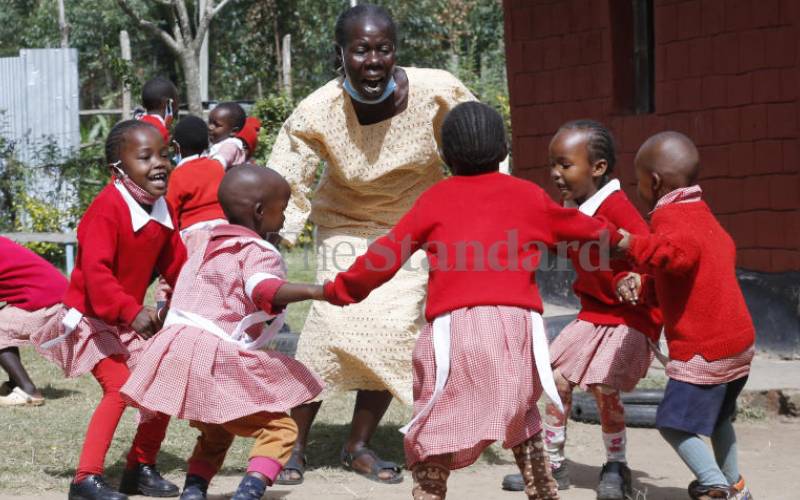×
The Standard e-Paper
Fearless, Trusted News

Teacher Phones Ajayo playing with pupils at Phonestar Academy, Bidii Center, Kitale, June 2021. [Stafford Ondego, Standard]
The introduction of the Competency-Based Curriculum (CBC) and the remodelled system of teaching occasioned by coronavirus pandemic have brought about drastic changes in public school teachers’ job description.